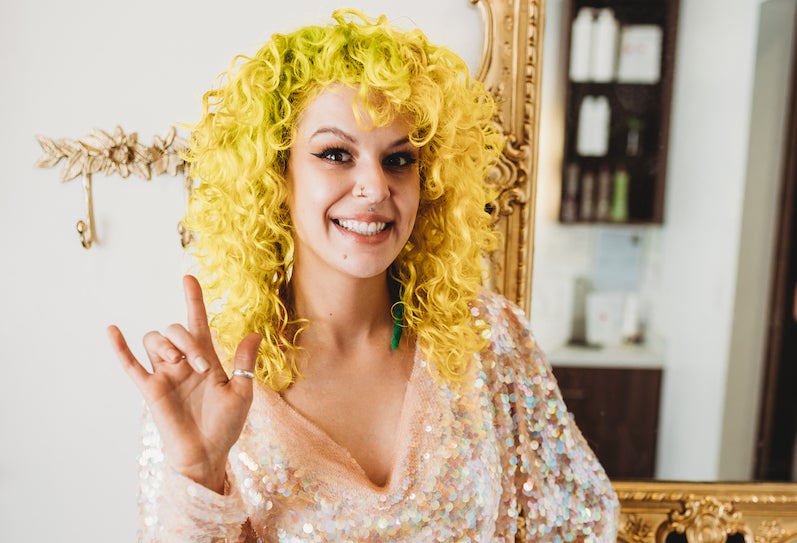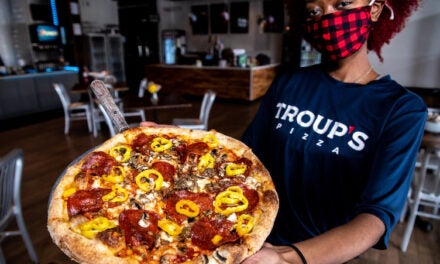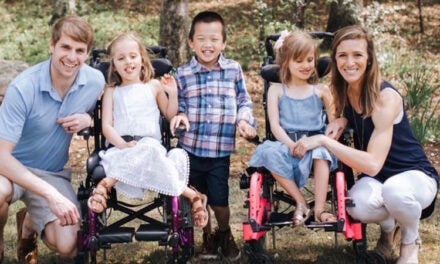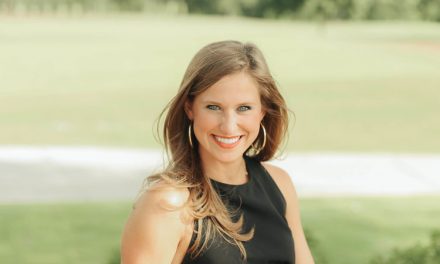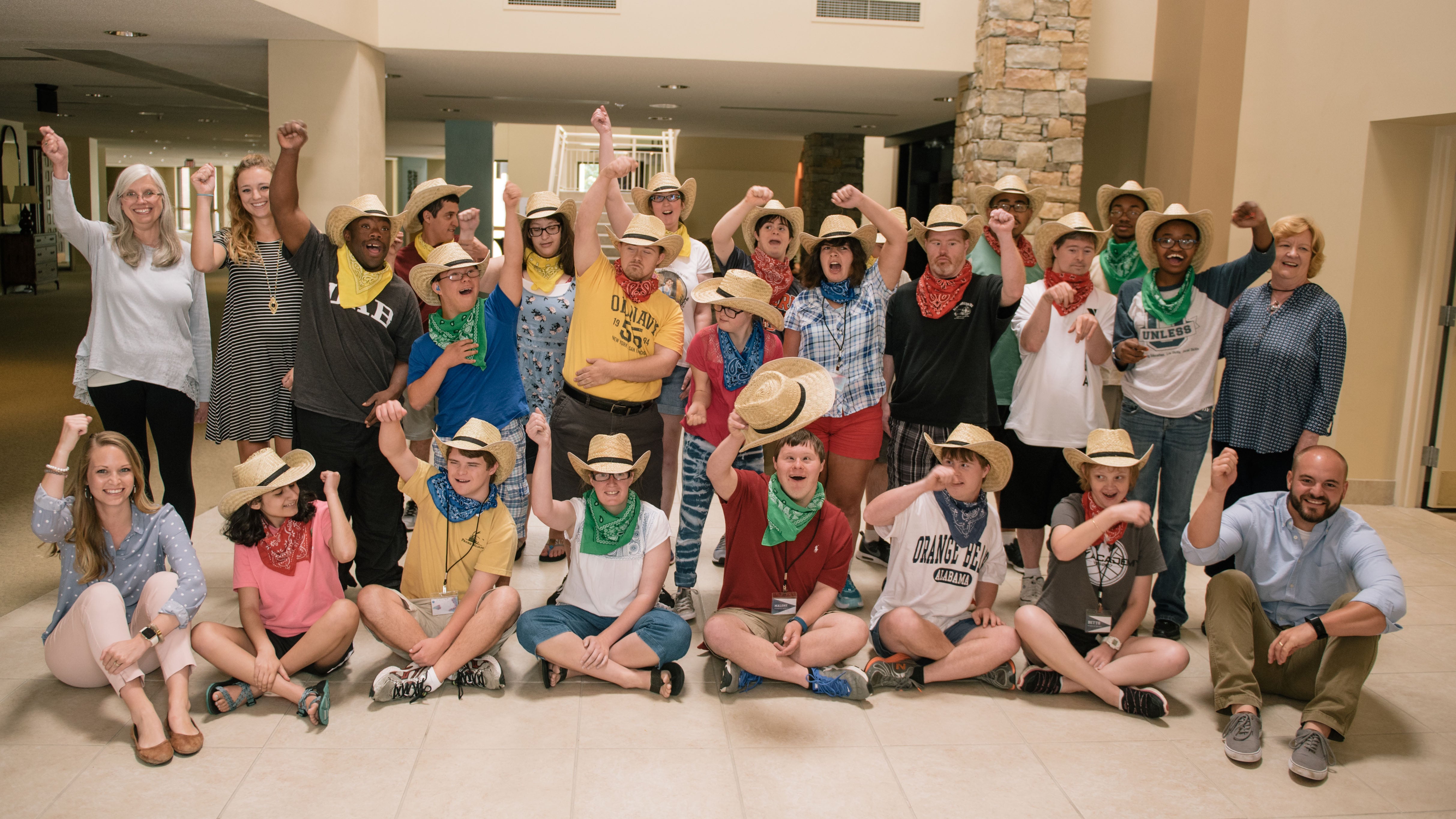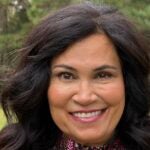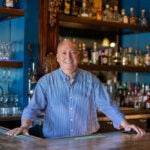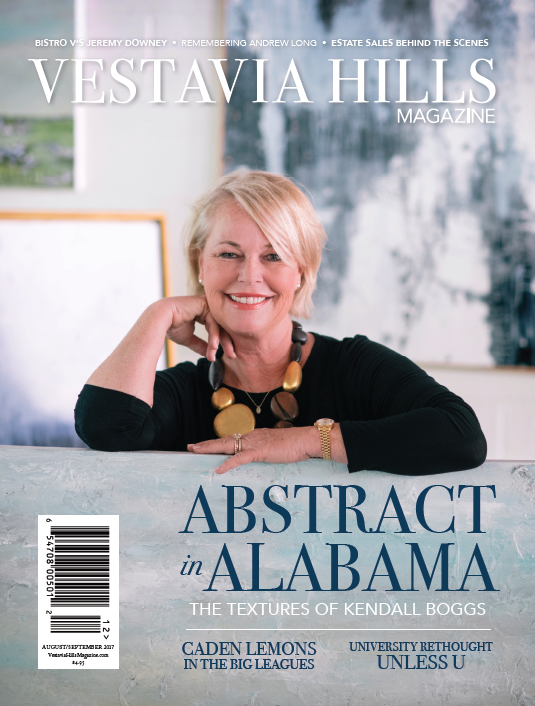By Aliza Baker
Kisa Powell’s vibrant green curls make it obvious she knows a thing or two about hair. Even as a child, she was on the school playground playing with the other children’s hair—an outlet for her fascination with curly and natural locks. It’s fitting that Kisa would go on to open her salon for natural and curly hair in the Vestavia Hills City Center, C.O.D.A. Curls, but her work extends far beyond keeping her clients’ hair happy and healthy.
The significance of Kisa’s work is hinted at in the name of her salon. C.O.D.A. stands for “child of a deaf adult,” a title that she is proud to represent considering two of the 70,000 people who are deaf in Alabama happen to be her parents.
“I could listen to music as loud as I wanted to growing up,” she jokes. “There are some definite perks.”
As a kid in Center Point, she never considered her family dynamic out of the ordinary. “I didn’t know any different,” she says. “It was the norm for me. Sign language is my first language, and I started signing at six months old.”
Kisa became more aware of her unique experience with deafness when she started elementary school, and her curious peers would ask all sorts of questions. It also became apparent that she communicated differently than the other students, and she engaged in speech therapy from preschool to sixth grade.
“I jumbled up my words while my sister talked like Elmer Fudd,” Kisa says with a laugh. “We always got the Ws and Rs switched up, which is something really common in children with deaf parents.”
As Kisa knows all too well, being a C.O.D.A. is a big responsibility, but being the oldest child is even more so. Her parents brought her to doctor’s appointments and important meetings, and it was her job to be the interpreter. “I’m my parent’s voice,” she says proudly.
As Kisa got older, she knew that she wanted to use her voice to advocate for the deaf community, but she wasn’t certain how to fit that into a career. Luckily, life had a way of working things out.
In 2008 while she was attending high school in Gardendale, she decided she wanted to be an auto mechanic, but when she told her guidance counselor that, she was promptly shut down.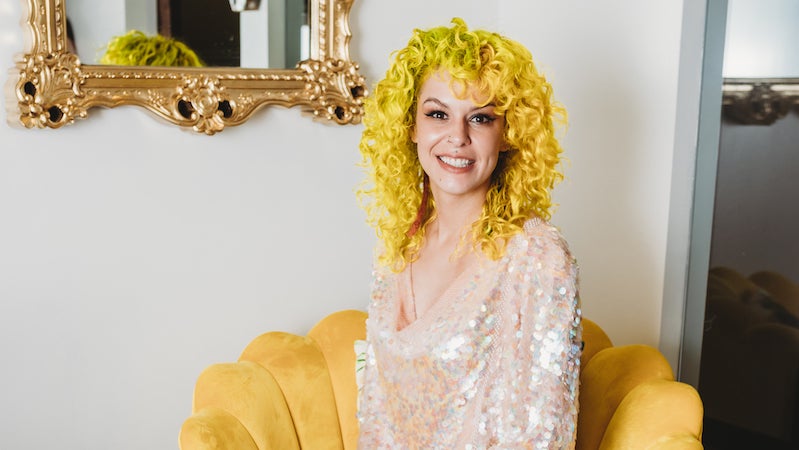
“They told me that I was ‘too pretty’ to go into that sort of thing, so they put me into cosmetology school instead,” she says bluntly. Looking back, Kisa admits that she’s grateful for the redirection—even if they could’ve been more delicate about it.
After receiving her cosmetology license in 2009, Kisa started working at Supercuts, but she quickly realized that the minimum wage salary wasn’t quite going to cut it (no pun intended) to pay for college. So she enlisted in the U.S. National Guard in 2010 and two years later was deployed to Kandahar, Afghanistan.
Deployment wasn’t enough to get in the way of doing what she loves though. In Kandahar, she would give military haircuts to men and touch up roots for women. Though the base had stylists, convenience was always prioritized over style. Kisa made it her mission to fix the array of bad haircuts so that everyone could feel more confident in themselves. “In the National Guard, you don’t wear any makeup, and you don’t really do any form of self-care,” she says. “So it’s nice to have at least one day to take care of yourself and pamper.”
Kisa’s time in Kandahar pushed her towards putting her passions into action to open a deaf-friendly salon back in the U.S. knowing full well the challenges she’d face. “You have to get a list of items or services so that they can actually see it or read it,” she says. “If someone is in the waiting room, go and tap them on the shoulder. Stand in front of them and talk to them or use your phone or pen and paper. You really have to take the time to sit down with deaf clients.”
The biggest obstacle in this line of work is potential miscommunication. It’s hard enough for hearing people to convey to the stylist that they want that trendy haircut they saw on Pinterest the other day. “They don’t speak our language, so it’s just a challenge,” she says.
So it’s no surprise there are very few deaf-friendly or deaf-owned businesses in the beauty industry. “There are hair stylists for people in wheelchairs, for little people, but there’s not anything for deaf people,” she says. “When you go to hair shows or education in classes, there’s not even an option for deaf people to go to beauty school. There are no interpreters or grants that pays for that, and there is no program.”
As far as she knows, C.O.D.A. Curls is the only deaf friendly salon in Alabama—or at least the only one that openly advertises it. Kisa’s goal is to create more accessibility in the beauty industry for people who are deaf, and she plans to do everything she can to do so drawing on her unique qualifications.
“C.O.D.A.s are unique because we are in two worlds,” she says. “We don’t fully speak perfect sign language, but we also have our own little nuances.”
How to be an Ally to the Deaf Community
Here is a list of ways that you can learn more and get involved.
- Write it down: Taking the time to write with pen and paper if it seems like someone can’t hear you seems simple, but it is a huge help to the deaf community.
- Educate yourself: You can visit the Alabama Institute for Deaf and Blind, located in downtown Birmingham, or aidb.org to learn more about the community and ways to get involved.
- Silent dinners: The Alabama Institute for Deaf and Blind hosts occasional ASL Silent Dinners at various restaurants around Birmingham. Anyone, deaf or hearing, is welcome to come and show their support. You can visit their Facebook page @AIDBBirmingham for updates about upcoming dinners.
- Sign it: Learning American Sign Language is one of the greatest ways to become more involved in the deaf community. You can sign up to take ASL classes at the AIDB Birmingham Regional Center in downtown Birmingham. The classes meet once per week for six to eight weeks, but spots fill up fast! Call 205-328-3989 for more information.

